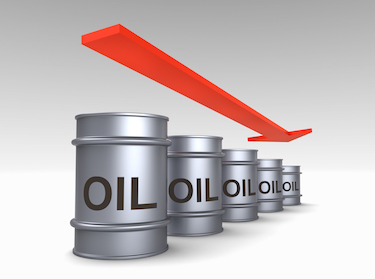What Low Oil Prices’ Mean to Recycling and Recyclers
 Everyday consumers rejoice at the sound of low oil prices. It gets them gas on the cheap and lets them save a little extra. Low oil prices also help businesses and sometimes in a very big way. The amount of electricity and gas required to run some facilities, including in manufacturing and construction, is absurdly high! Those of us in the recycling industry though have a bit of a different relationship to low oil prices. In many ways, it’s a big negative.
Everyday consumers rejoice at the sound of low oil prices. It gets them gas on the cheap and lets them save a little extra. Low oil prices also help businesses and sometimes in a very big way. The amount of electricity and gas required to run some facilities, including in manufacturing and construction, is absurdly high! Those of us in the recycling industry though have a bit of a different relationship to low oil prices. In many ways, it’s a big negative.
Before we get into all the jibber jabber on low oil prices and what they mean to recycling, it’s important to understand how oil pricing works. Depending on supply and demand, oil prices rise and fall according to the market. When less oil is produced but the same amount of people or more want the same amount of oil, it becomes more valuable and the price increases. When more oil is produced than what the population wants, there is more supply and so the price falls. Since 2014, the world has seen the oil supply increase overall. Nations such as Russia, Saudi Arabia, and North Africa continue to push out significant numbers. Also, Canada and the United States have begun exploiting their own resources to find oil. At the same time that this supply has been rising, global demand has been slowly falling. The result is the lowest oil prices in almost fifteen years!
How this all affects recycling has to do with how plastic is valued alongside how oil is priced. Plastics are a direct by-product of petroleum and oil processing, meaning that as oil prices fall, so does plastic accordingly. Today, oil prices are so low in some areas of the world that it is less expensive to buy virgin plastic than to purchase recycled plastic. For recycling, this means a supply of recycled plastic that is no longer economically advantageous.
So the domestic and global demand for recycled products is shrinking. Recycled plastic, paper, and metal have all seen drops in value, weakening alongside oil pricing. The recycling market is at a crucial moment where how we respond is going to determine how many companies like ours survive.
Know that we can’t change oil pricing or the relationship that recycling has to low oil prices. There’s no way to get around that. The best approach to low oil prices is in finding ways to reduce the cost of recycling. A big part of this is eliminating contamination. Consumers need better education on what contamination is and how it affects recycling. Significant value in recycling is lost due to contamination. Beyond this, the benefits of recycling in lowering greenhouse gas emissions and protecting the environment needs to be emphasized.
The present landscape of recycling is being threatened by low oil prices and there is a sufficient need to compensate on pockets of the marketplace that are rejecting recycled products. The environmental benefits are well-established and its cost-effectiveness needs to be maintained.
Building a sustainable future together is going to rest on being able to recycle efficiently with regards to all types of waste products, household and commercial alike. Recycling’s future should not depend on high oil prices. Instead, it needs to be focused on efficient processing and product distribution. That’s how recycling can defeat low oil prices and continue to make its mark!


